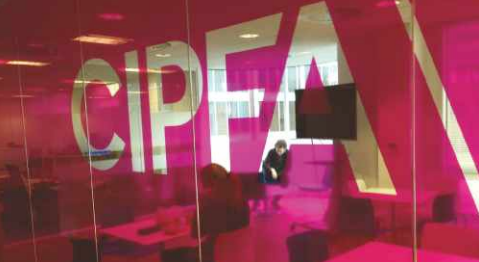It has been a particularly turbulent few years. From Brexit to austerity, climate change and rapid technological advancement – changes have been thrown at finance and accountancy professionals from all directions. But rather than seeing these developments as a hindrance, we should view them as an opportunity to modernise, protect the environment and make the public sector fit for the future.
As the world continues to evolve, the accountancy profession and CIPFA must adapt to keep up. This starts with the education and training of the next generation of finance professionals. We must deliver a better service to our students and their sponsors if we are going to empower them to deliver a better service to citizens and society.
Rising to this challenge, CIPFA has launched CIPFA 2020, an exciting project to revise our professional curriculum. In the months ahead our professional accountancy qualification will be reviewed completely, to guarantee that we are providing the best training for tomorrow’s public finance leaders.
In order to do this we are consulting with employers as well as other stakeholders to understand the primary needs of the profession as it moves forward. The expertise of CIPFA members and staff will also be captured and included. There are four phases of the project, and we are currently in the first – completing the research that will inform the qualification’s development.
Research is being carried out through surveys, interviews and roundtable discussions to gather as much input as possible. After the research phase is completed the process of developing the new curriculum will begin, and then the syllabus and coursework soon after. It is customary to review curriculums and teaching practice every five years, but CIPFA 2020 is particularly well-timed, for multiple reasons. Since the last refresh in 2015 we have endured further austerity and are coming out the other side more resilient than ever before. This should be reflected in our teaching methods.
In addition to the rapid social and political changes taking place around us, it is also important to keep up with the fast-paced technological advancements.
Technology is an important enabler, especially for the accounting profession. According to reports earlier this year from AAT, the majority of accountants think basic accountancy practices will be fully automated within five years. This progress must be reflected in our curriculum, to make our professional qualification more distinctive and forward-looking.
We recognise the need to incorporate these new technologies into our qualification. In turn, we can teach our students how they can use these tools to solve industry problems and lead to greater ingenuity in the sector as a whole.
These changes may bring some challenges, but also opportunities to move the accountancy profession forward in profound ways. Taking advantage of these developments will only bring us closer to greater efficiency and modernisation. With the CIPFA 2020 project, we will be on the front line of this new accountancy landscape.
What will the future look like? It is difficult to say. But the most important thing that we can do is ensure that our professional qualification best prepares our students for what’s to come.
• Jayne Owen, Chair of the Student and Members Board, CIPFA




